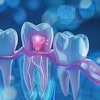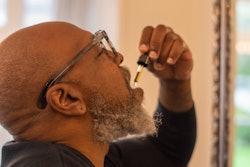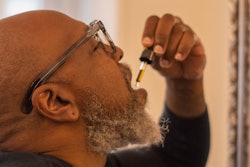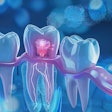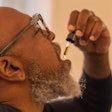Cannabidiol (CBD) may show potential as an effective treatment in dentistry, especially for managing conditions like orofacial pain and inflammation, according to a review recently published in the Journal of the American Dental Association.
However, further clinical trials are needed before CBD can be confidently recommended for dental use, the authors wrote.
“The preliminary evidence suggests that CBD may hold promise as an adjunctive therapeutic option in the field of dentistry,” wrote the authors, led by Dr. Lukas Mendes de Abreu, MS, of the University of São Paulo Bauru School of Dentistry in Brazil (JADA, October 2025, Vol. 156:10, pp. 838-850).
For this study, a comprehensive literature search across five electronic databases was conducted in March 2025. The search focused on cannabis derivatives and oral disorders, using terms related to CBD, pain, inflammation, oral microbiota, and conditions such as mucositis and gingivitis, they wrote.
Studies that evaluated CBD for treating or managing oral disorders in human participants were included in the analysis. Both nonrandomized and randomized controlled trials (RCTs) were eligible for review. Seven studies were included in this review.
Three randomized controlled trials examined CBD’s effects on acute and chronic orofacial pain, including postoperative dental pain, temporomandibular disorder, and bruxism. All reported significant pain reduction compared to placebo, showing consistent benefits for pain management, they wrote.
Two additional studies investigated CBD’s anti-inflammatory and antimicrobial effects on gingival inflammation and plaque control, both finding notable improvements over placebo or active controls. A topical CBD paste also significantly reduced ulcer size and pain, performing comparably to a standard corticosteroid paste. No serious adverse events were reported across the studies.
Nevertheless, the study had limitations. Most of the included studies had small sample sizes and short follow-up periods, making it difficult to evaluate CBD’s long-term safety and effectiveness, the authors added.
“Future research should prioritize well-designed, adequately powered, multicenter RCTs with standardized dosing, formulations, and routes of administration to enhance comparability,” they wrote.

